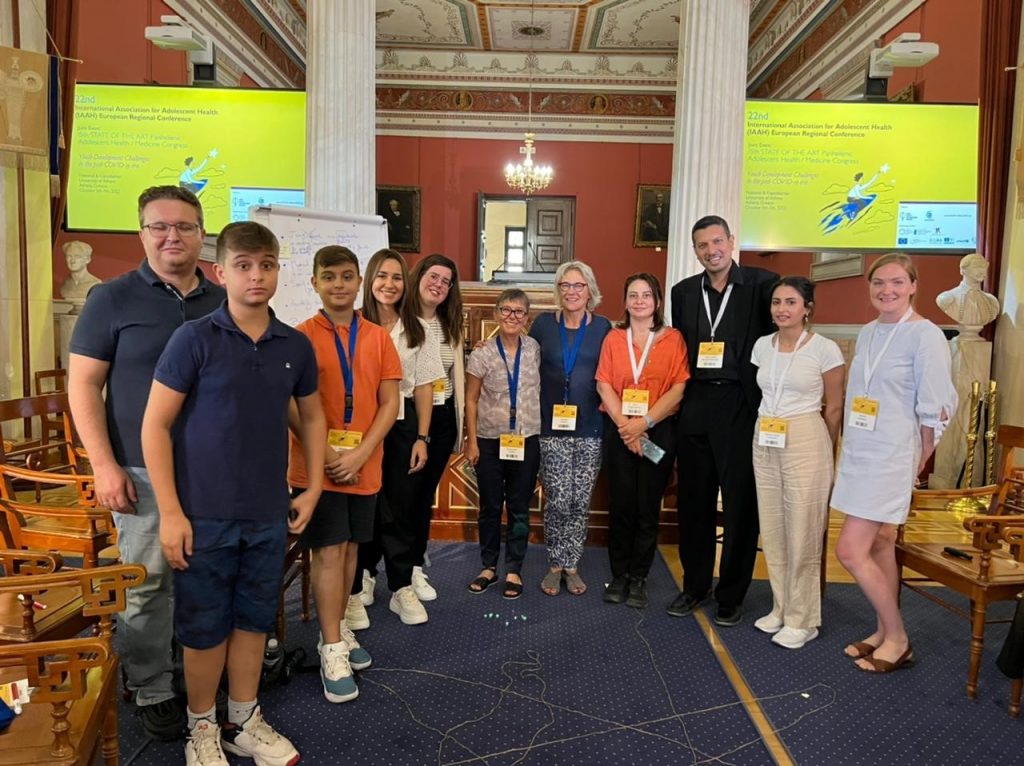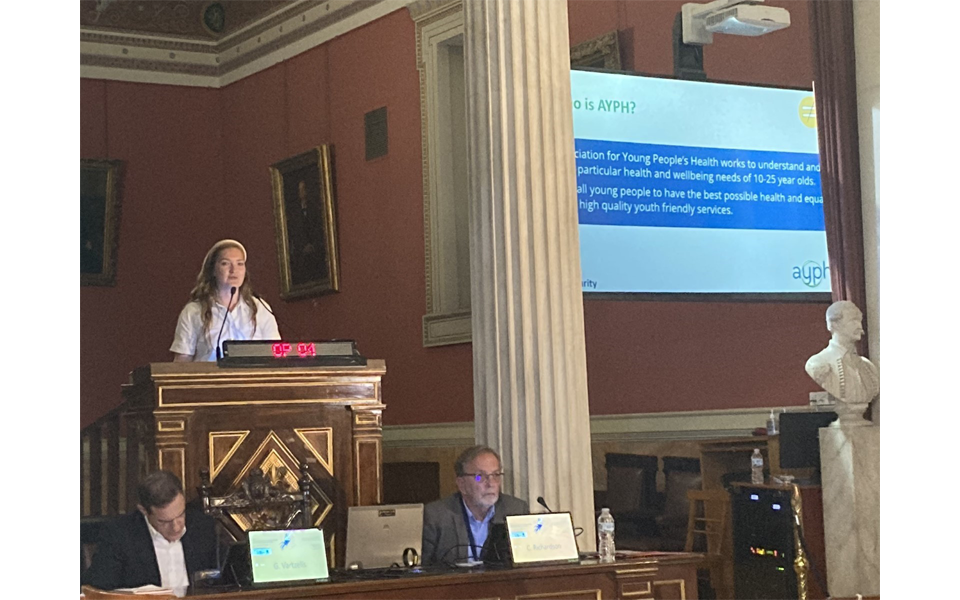Earlier this month Rachael McKeown, AYPH Policy Fellow, attended the International Association for Adolescent Health (IAAH) conference in Athens. In this blog post, she summarises the main topics and themes from the event, which highlights the importance of learning from what’s happening in other European countries to improve young people’s health.
Adolescence is the “last chance” for healthy adulthood
It’s not often that we attend events where everyone is singing from the same hymn sheet. But at IAAH one thing is clear, everyone present is focused on improving the health and wellbeing of young people aged 10-25. It’s heartening to see so many healthcare professionals and researchers united on this front, for which we continue to advocate in the UK.
The conference included talks and symposia covering a broad range of topics and healthcare conditions that are acutely important for young people. There were presentations on acne, abdominal pain, mental health and suicide, substance use and eating disorders. Running through all of the sessions was a focus on prevention. Much of the morbidity and mortality in adolescence can and should be prevented. It’s a familiar message in our field, but one that bears repeating.
Importantly, many of the speakers noted the significance of health inequalities. In a unique plenary session, young people were given an opportunity to question Professor Michael Marmot about the specific inequalities facing adolescents and how young people can be part of the solution when designing resilient societies. Marmot urged the audience and young people to harness the anger they feel to demand changes for the better. Generally, it was great to see young people’s voice placed at the centre of each and every conference session, with young people being first to ask questions of the speakers.
How does the UK fare on an international stage?
It felt fitting for the conference to be held in Athens, as data throughout the event revealed a number of worrying health concerns for young people living in Greece. Comparatively, Greece has the highest levels of both obesity and alcohol consumption in Europe. However, they have the lowest suicide mortality rates. While the UK did not tend to appear at the bottom or top of comparison lists within the data when looking at health conditions in general, it was noted as a location with the greatest inequalities.
It was interesting to see how countries are approaching adolescent health service delivery – which can be key to reducing inequalities. Naturally, there were common problems across all countries, particularly relating to transition between paediatric and adult services. The HEADSSS tool for assessing young people appears to be useful for practitioners across a range of settings and places. There was a dedicated session on youth friendly health services, which highlighted the importance of confidentiality, trust and time needed to build relationships with young people.
Impact of Covid-19 on school closures

As we are emerging from Covid-19, the conference offered an important opportunity to reflect on the impact of the pandemic on the lives and education of young people. There was one question that continued to be raised time and time again during the event: “Should a pandemic strike again, would we close schools?”
The answer is, of course, complex. Many of the conference speakers highlighted data and evidence of the huge impact Covid-19 had on young people’s mental health and wellbeing. The caveat is that it would not be possible to say whether the downturn in young people’s wellbeing was caused by school closures specifically or the social isolation of Covid-19 more generally, or both. What is known is that young people have reported decreased learning during lockdown periods of online learning. Unfortunately data reveal a widening educational divide among students who had less or greater access to learning in these periods. Last year AYPH published a briefing paper on the impacts of Covid-19 on young people in the UK, including the impacts on education.
It is clear that young people will be paying for these measures in many years to come and we do yet know the full impact of Covid-19 on young people’s health and wellbeing. Looking forward, there is much to be done to ensure schools are better prepared in the future. There was much support from conference attendees for schools to become health promoting environments, which improve health and educational outcomes simultaneously. Food for thought in relation to next steps for adolescent health in the UK.

